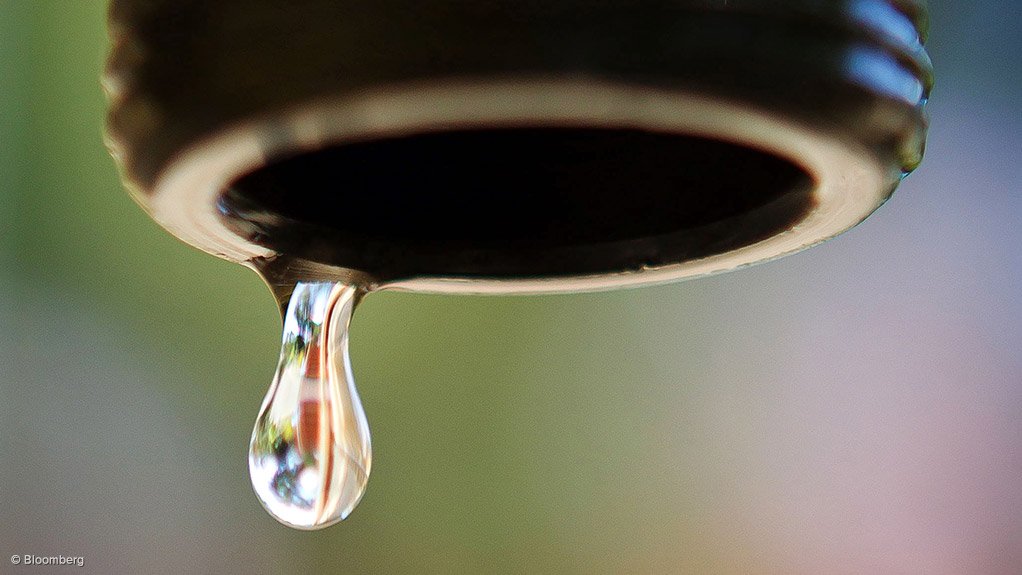The content on this page is not written by Polity.org.za, but is supplied by third parties. This content does not constitute news reporting by Polity.org.za.
At a Critical Thinking Forum held earlier this week to launch the ActionAid South Africa Water Interrupted campaign and Running on Empty report, panellists discussed the role of business, government, and citizens on the looming water crisis in the country.
Emily Craven, head of programmes at ActionAid South Africa, said the water crisis in South Africa did not start in 2015 but has been imminent for many years.
“The reality is that it is only going to get worse. Inequality, poverty, violence, and a lack of infrastructure all feed into the current drought situation. As it stands, the system is problematic and focused on an unequal distribution of water,” she said.
Craven cited several examples of some of the consequences of the drought two of the most pressing being sexual violence by those targeting women as they walk far distances at night to collect water and girls who cannot attend school without water while they are menstruating and therefore being denied education.
“We cannot just hope for rain to solve our crisis. We need to question the way the economy and society are structured, which is also reflected in who gets the access to water.”
Dhesigen Naidoo, CEO of the Water Research Commission, agreed and stated that the country is at the front end of the reality of a changed climate.
“This is the story about inequality in terms of water pricing and availability around the world. We need to join hands with partners both locally and abroad across sectors for global access to water. Fortunately, there are technological solutions to address this but it is key to recognise the problem and not diminish its severity,” he said.
For Paul Gilding, co-founder of Changing Markets, the looming water crisis is not just limited to South Africa but is a global one. Unfortunately, he feels that the way many in all spheres of society, including businesses and governments, address this is not adequate.
“Typically, we wait until there is a crisis and have no choice but to change. With South Africa acutely affected by water issues, it stand at risk of a significant economic crisis. T
Furthermore, the lack of water could lead to the collapse of societies. Take for example what has happened in Syria, where water scarcity is now widely recognised as one of the factors that triggered the conflict. It is therefore imperative to recognise the scale of the threat at a global level and act locally to address it,” said Gilding.
Business can do amazing things when it is forced to act out of its self-interest to respond to a crisis. But Gilding believes that more pressure needs to be put on the business community to start mobilising today in order to avert the looming crisis in the decades to come.
Sputnik Ratau, spokesperson for the Department of Water Affairs continued by stating that water is critical to all things, without it there is no livelihood.
“Not having access to water has an even bigger consequence than being without electricity for a few days. With the amount of water available dwindling, there is a need to engage with people and even look at the cross-border relationships when it comes to water, the rivers flowing into the country, and general usage.”
For Kumi Naidoo, Director of The African Civil Society Centre, the challenge is that most leaders suffer from cognitive dissonance.
“We are just getting pretty timid lip service to the problem. The policy makers of today might not pay the price of inaction but instead are passing on the problem to the next generation. The business community has to ask itself whether it is ready to act in its own self-interest. Water, like energy, is the fuel that drives all our economies. Without water, many of our businesses will collapse. Many businesses are already fundamentally impacted by the reality of the water crisis.”
Naidoo believes that solutions are needed that can turn the crisis into opportunities.
“Water will inevitably become more expensive as it becomes scarcer. The business community needs to start serious investments in water efficiency technologies across the supply chain. It needs to reduce water pollution and put targets in place to track the progress. Investment need to be made in research and development of products that can save water. The ‘Running on Empty’ report is a call to action. This is a document we all have to read and then stand up and fight to realise what is in there.”
The Water Interrupted report is available as a free download on the ActionAid South Africa Web site at www.actionaid.org/south-africa.
Issued by ActionAid South Africa ![]()
EMAIL THIS ARTICLE SAVE THIS ARTICLE
To subscribe email subscriptions@creamermedia.co.za or click here
To advertise email advertising@creamermedia.co.za or click here











